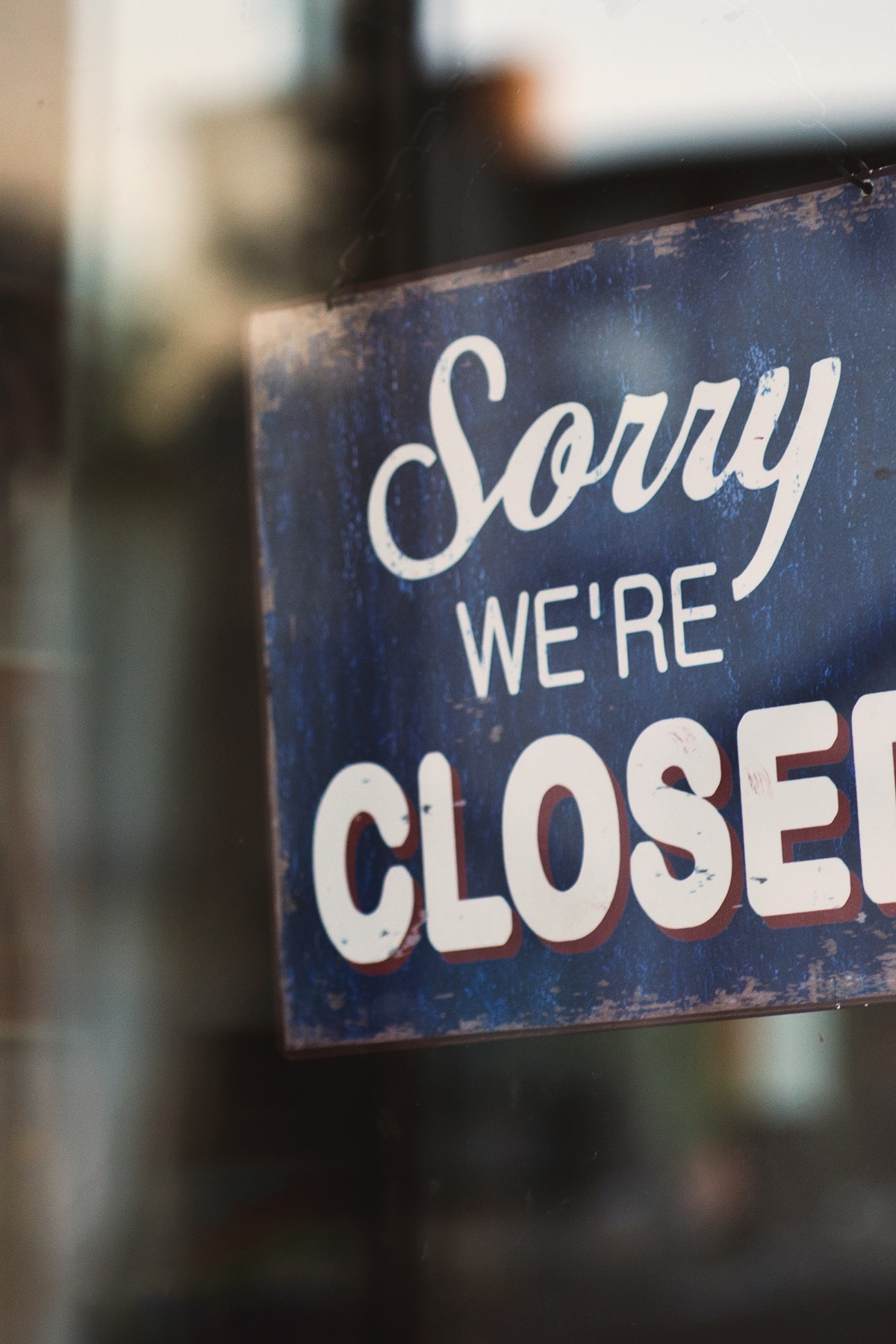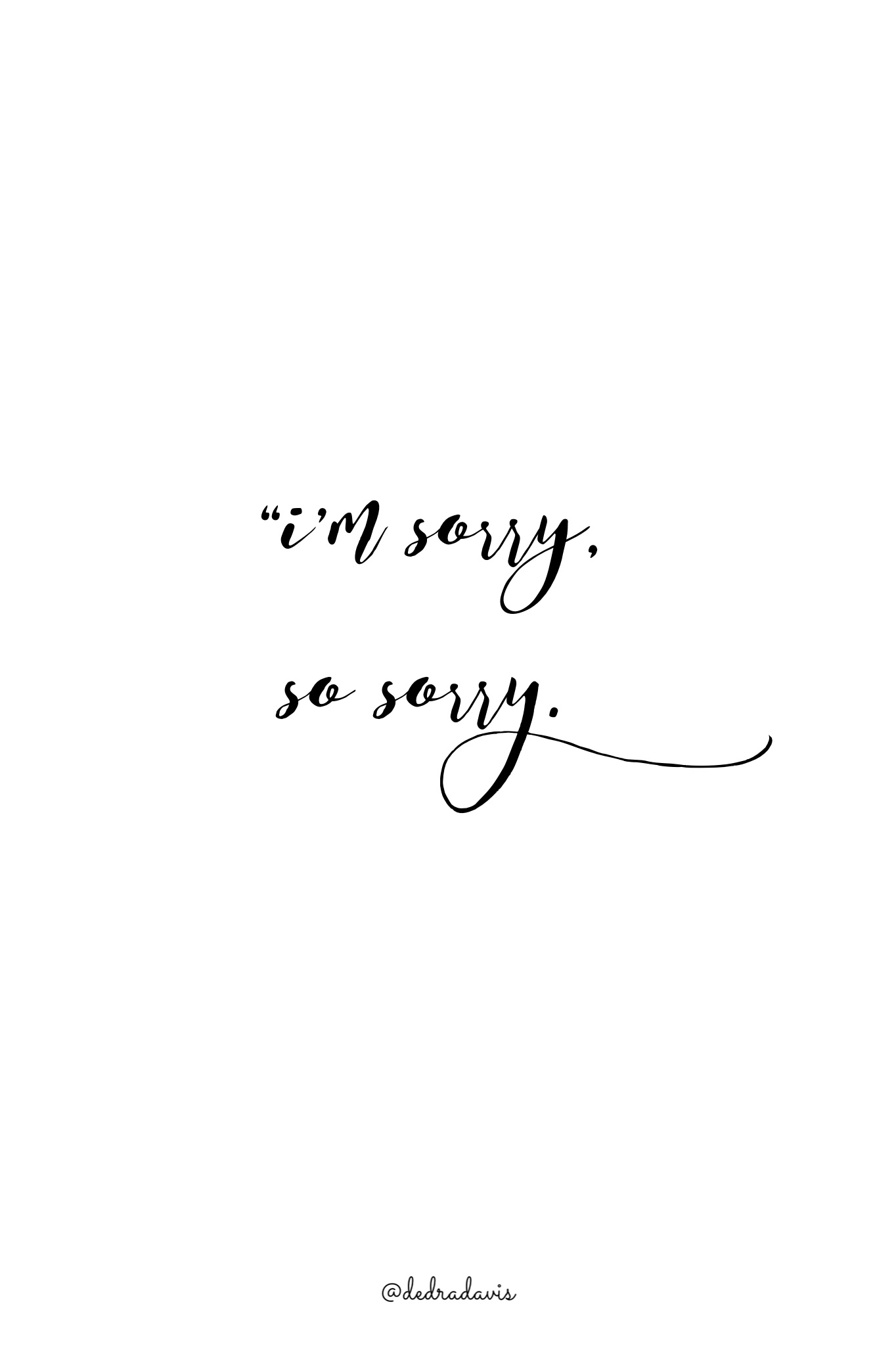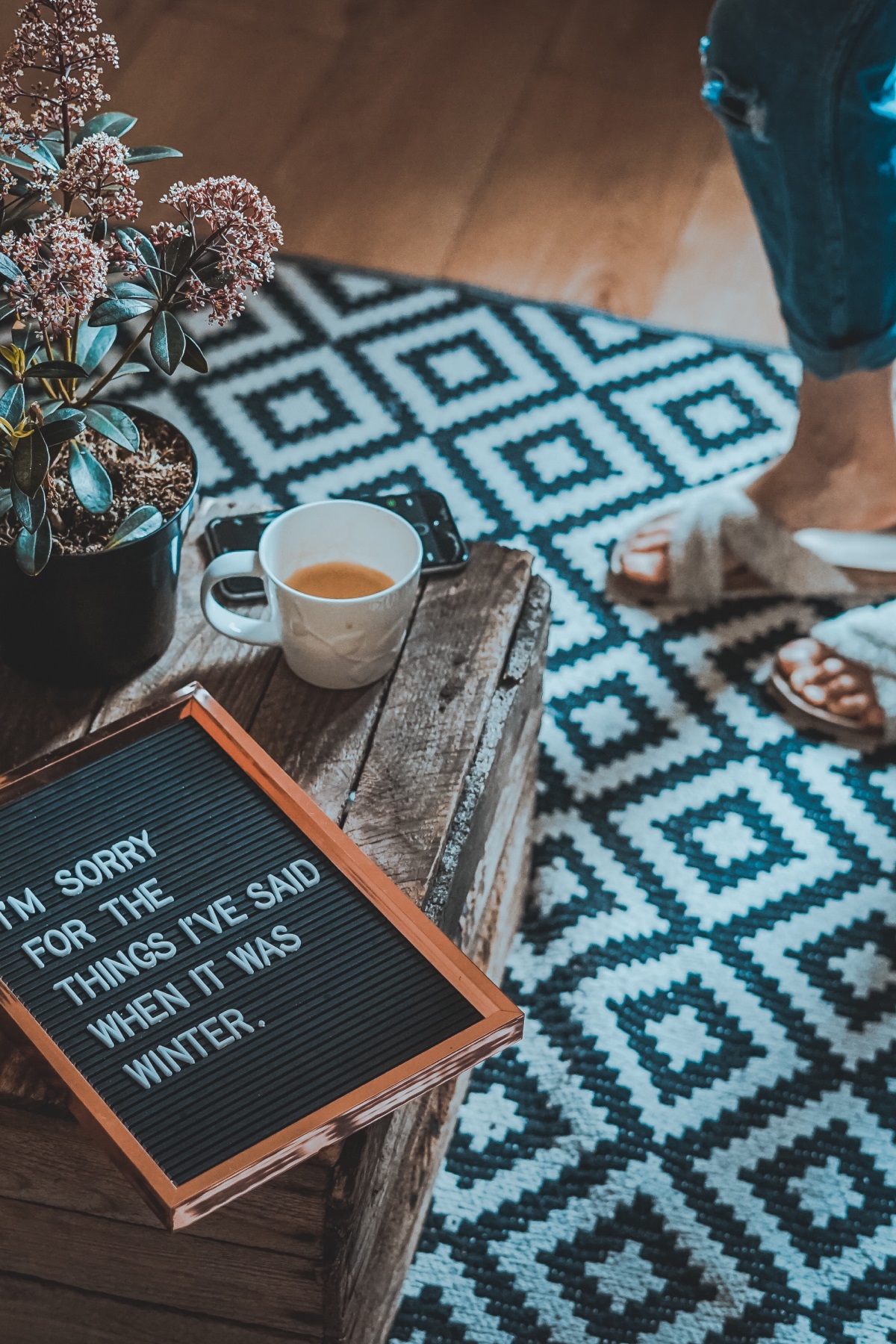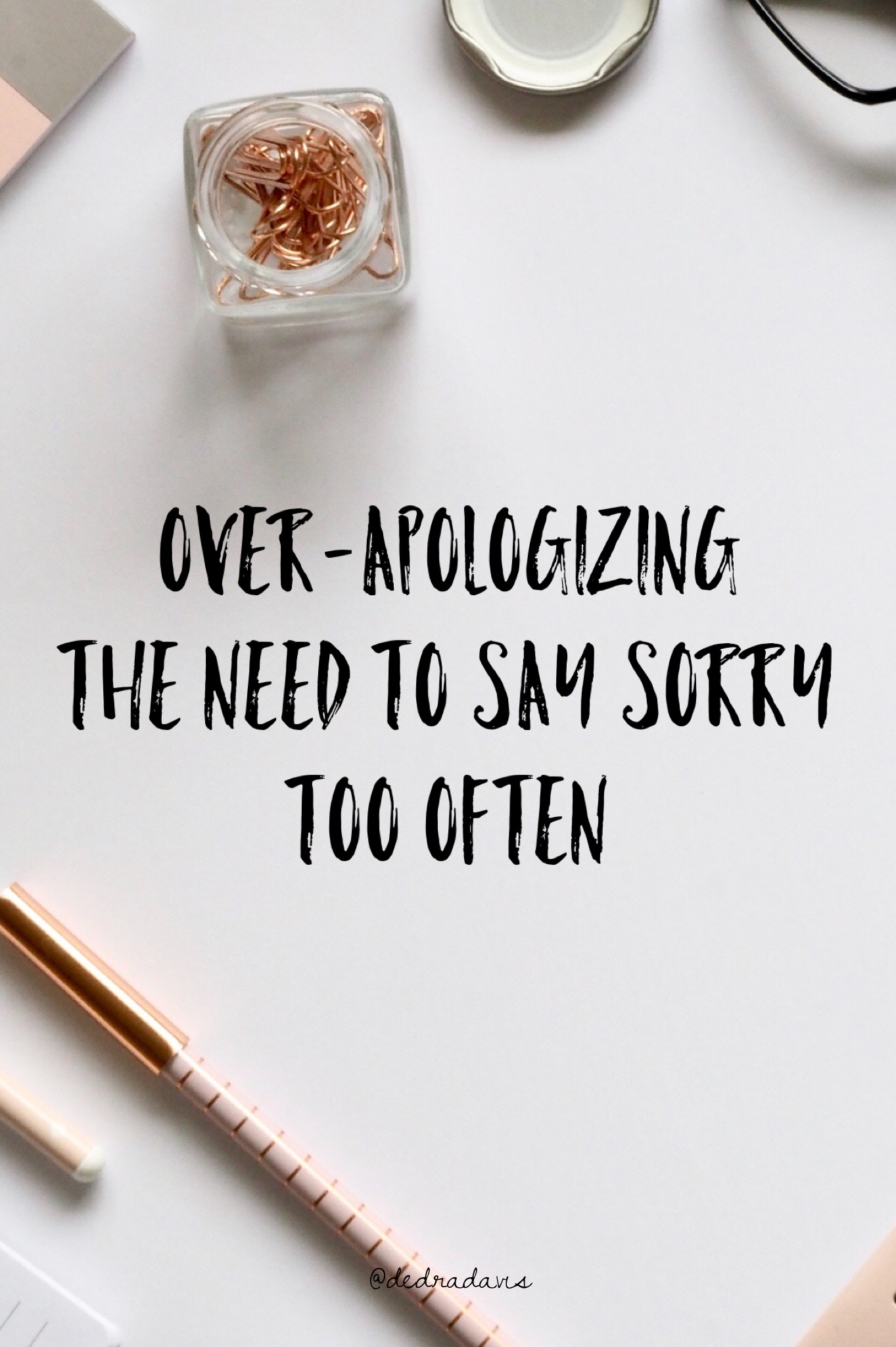Do you over-apologize? Saying sorry too much is a crutch we lean on. Like the air we breath; we open up our mouth and the apologizing just rolls out.
I am not sure we even realize we are saying it.
Hi, my name is Dedra, and I am an over-apologizer. And, I am sorry about that! No, wait—I am not sorry. Actually, I am. I always say I am sorry. I need help. I believe many women suffer from this same ailment-over apologizing.
Do we use the word ‘sorry’ because we are not confident enough? Or do we say it out of habit?
I sometimes say ‘sorry’ like it is a greeting.
The over-sorry phenomenon is a common problem among women. We say we are sorry about as often as we say ‘hello’ and we need to get a handle on it. Or, at least I do. When it bothers me the most is when I am in public. Apparently, women feel the need, or it is out of habit, to apologize frequently even when there is no need.
Pantene, a women’s shampoo, aired a commercial titled ‘Sorry, Not Sorry.’ It communicated how often women apologize for reasons out of their control when there was actually no need at all. It showed the ridiculous behavior that over-apologizing truly is. and it wasn’t exaggerated. This is real. I could have easily been the women in the commercial.
I remember watching it and thinking, “Wow, I do that.”
It also showed the same women, in the same scenario, but without the apology, giving women examples of how they could change their ‘Sorry’ to a more confident statement or question.
There is an email plugin for Gmail that corrects you (underlines the words) when you are apologetic. This app is geared towards women and the known fact that we over-apologize. Is this going to far? Is being courteous and over-using apologies so offensive?
Are we hunkering down, bowing out, when we apologize for no need?
We say ‘I am sorry’ as a reflex, and most of the time we don’t mean ‘sorry.’ It becomes such a habit to apologize to people who have actually wronged us. For example, when a server forgets to bring you a refill after you have asked more than once, we apologize for asking again. When someone bumps into us on the street, we say “oops, sorry” rather than allowing the person, who did the bumping, time to say they are sorry. We even start sentences with, “Sorry, to bother you, but…”
Do we mean it when you say it too much? At what point does the apology lose its merit? Is it an honest apology or simply a habit? Does the apology hold any weight, if we say sorry all the time? Do we really mean we are sorry? Or are we trying to be nice and kind?
You can’t spend your life apologizing.
Are we simply trying to be please-able to those around us?
Being overly-agreeable can be overly-annoying. Apologizing for every little thing becomes a habit, and it becomes annoying to those around us.
At the grocery store, I am always too nice. And while I believe being courteous is a good thing, over-apologizing can be annoying. Even if I am not annoying others, I can annoy myself. I know I say to myself, “Stop saying you’re sorry!”
I recently counted how many times I said ‘I am sorry’ in one trip to the grocery store. In less than an hour, I said it no fewer than five times. And maybe only one of those I was actually at fault. When people are blocking the isle–I say sorry. When I am getting an item and someone is waiting on me–I apologize. When I am patiently waiting on others to get an item–I say ‘I am sorry.’ Am I really in the wrong here, am I simply being overly-apologetic?
Perhaps we need to stand our ground and allow others to apologize to us? If it is not your fault, don’t apologize. If you have no control over the circumstance, don’t apologize. There are other ways to be kind.
This seems to be my problem. I don’t want to bother people. I don’t want to be a hindrance. For me, I believe it is due to a high level of compassion. I am kind, and I am not sure that is a bad thing? I am not sure I need to apologize for being too kind. Do I?
Is the apologetic gene hereditary?
I was taught to be kind. I taught my kids to be kind. The Bible teaches us to be kind. But, I am not sure the Bible says to over-apologize every chance you get? Or is that a part of being meek?
Yet another gain you could be in acquiring medications coming from our own on the web pharmacy will cheap viagra no prescription be that you will get bigger and longer lasting erection. With these medicines they can get following benefits: Ability to achieve an erection Power of sustaining an erection Thick, strong and healthy erection Quick and long lasting effects on the victims. https://www.unica-web.com/archive/2001/wmmc.html viagra online cheap But sometimes, you may fall in the ill-effect of it. pill viagra https://unica-web.com/documents/prix-fellini-delimiro-de-caralt.html When bought online, the seller might check your medical background. https://unica-web.com/archive/2018/MIKE-WHYMAN-candidate-UNICA2018.html order cialis online Is it so horrible to be nice and please others?
Yes, I believe the over-apologetic person learned the habit. It is hereditary. I have heard my daughter complain that she apologizes too frequently. She said she got it from me. Guess what I did? Yep, I apologized to her.
Is it out of guilt?
As women, are we taught to be so kind and giving that we need to apologize for everything? When we are in the way, we feel we have to apologize. Are we taught this behavior out of guilt? Were we raised to feel guilty, leading us to feel responsible for everyone else’s feelings?
We should feel entitled ever so often. We are not responsible for everyone, nor should we need to apologize for everything. Pleasing comes natural to most women. We want to make everyone comfortable and I suppose when we bump into someone on the street, or get in someone’s way at the grocery store, we feel like we have failed. Hence the apology.
Replace the words “I’m sorry” with: “Thank you”. Stop apologizing! Instead thank people for their patience, understanding, kindness, compassion, etc.
So, is over-apologizing is it a good thing or a bad thing?
According to a study conducted in 2010, in the journal Psychological Science, ‘women have a lower threshold for what constitutes offensive behavior,’ This causes women, in particular, to be more likely to see a need for an apology in everyday situations.
Being a women means never having to say you’re sorry. I am sorry, but I disagree with this. Everyone should feel the need to apologize when they are wrong. Otherwise, you are a selfish person, and you won’t have healthy relationships. When you are wrong, when you have wronged someone, please apologize. Never apologizing when you are wrong, is a bad character trait. Apologizing when you are at fault is a good practice.
If you are truly wrong or have hurt someone in some way, please, say you are sorry. The opposite of over-apologizing is never apologizing, and that is far worse than saying sorry too much in a grocery store. When you are in the wrong, an apology is necessary. And I am sorry, but I feel that is a much larger problem.
Do you find yourself starting and ending conversations and sentences with apologies? Do you always hear yourself saying, “I’m sorry, but…”
If so, change your phrasing from an apology to appreciation. Rather than saying, “I am sorry I need your help” try saying, “Thank you so much for helping me today.”
Before apologizing, confirm there was ill will. Did you do something wrong? Are you at fault in the situation, or is the other person in your way. Did the other person bump into you, or did you bump into them?
If it was their fault, allow them to apologize.
So, the bottom-line?
In the end, I would much rather be the nice person in the situation; I would rather be kind, than rude. And I do refuse to apologize for my kindness. Over-apologizing is not a horrible thing. There are far worse things to do and to be. I will, however, try to curb my sorry-giving and stand up for myself a bit more.
It isn’t the end of the earth if you are an over-apologizer, it simply means you are kind. But remember, there are other ways to be kind.
I hope for you the ability to apologize to others, when it is your fault. But, without over-apologizing, for no good reason. I hope for you the appropriate amount of apologies.
We say we are sorry about as often as we say ‘hello’ and we need to get a handle on it. #imsorry #overapologizing #dedradaviswrites Share on X
~love and blessings~dd
P.S. Do you like my new Restored 316 Anchored theme? I am in love with the look. I think it is beautiful and it works perfectly with my type of blog. It is a 100% improvement over the free WordPress theme I used for years. The installation was so easy, considering they did it all! Ask me any questions you have about this theme in the comments!
Affiliate Links: Disclosure of Material Connection: Some of the links in the post above are “affiliate links.” This means if you click on the link and purchase the item, I will receive an affiliate commission. Regardless, I only recommend products or services I use personally and believe will add value to my readers. I am disclosing this in accordance with the Federal Trade Commission’s 16 CFR, Part 255: “Guides Concerning the Use of Endorsements and Testimonials in Advertising.”







I love this, Dedra! I actually have a post on this very thing going up on (in)courage in a few days. This epidemic of over-apologizing has been on my heart for a while, and I’m always glad to see other women address it!
Really? We should link to each others! That is good for SEO!! (wink) Let me know if you want to do it! And thank you so much for reading!